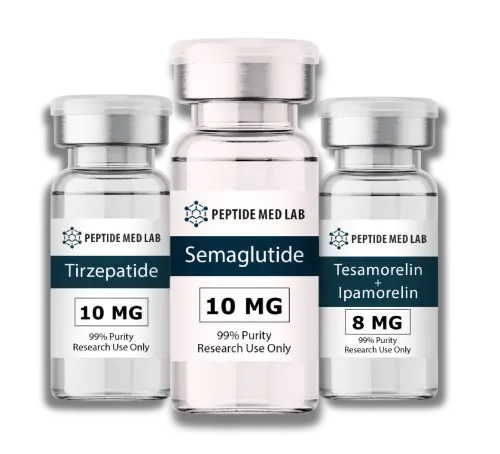Unlocking Synergy: The Potential of PE-22-28 and SS-31 Peptides in Enhancing Mood, Memory, and Heart Health
In the realm of peptide research, the quest for innovative solutions to optimize health and well-being continues to unfold. Among the myriad peptides under investigation, PE-22-28 and SS-31 have emerged as promising candidates with multifaceted potential. These peptides exhibit distinct mechanisms of action yet share common goals of enhancing mood, memory, and heart health. Exploring the synergy between PE-22-28 and SS-31 offers a fascinating glimpse into the future of personalized medicine and holistic approaches to wellness.
Understanding PE-22-28 and SS-31
PE-22-28 is a peptide derived from a natural protein found in the brain. It has garnered attention for its ability to modulate neurotransmitter activity, promote neuroplasticity, and support cognitive function. SS-31, on the other hand, is a synthetic peptide known for its antioxidant properties and mitochondrial protective effects. While PE-22-28 primarily targets brain function, SS-31 exerts its effects at the cellular level, offering protection to various organs, including the heart.
Enhancing Mood
Mood disorders, such as depression and anxiety, are prevalent worldwide and can have a profound impact on quality of life. PE-22-28 holds promise for alleviating mood disturbances by modulating neurotransmitter systems involved in emotional regulation. By enhancing the activity of neurotransmitters like serotonin and dopamine, PE-22-28 may promote feelings of well-being and resilience to stress. Additionally, SS-31’s antioxidant effects can counteract oxidative stress, which has been implicated in mood disorders.
Improving Memory
Memory decline is a common feature of aging and neurodegenerative diseases, presenting significant challenges for individuals and healthcare systems alike. PE-22-28’s ability to promote neuroplasticity and synaptic connectivity offers potential benefits for memory enhancement. By facilitating the formation of new neural connections and strengthening existing ones, PE-22-28 may improve cognitive function and memory recall. Furthermore, SS-31’s mitochondrial protective effects support optimal brain energy metabolism, essential for memory consolidation and retrieval.
Supporting Heart Health
The heart is a vital organ with unique energy demands and susceptibility to age-related damage. SS-31’s antioxidant and mitochondrial protective properties make it particularly well-suited for supporting heart health. By scavenging free radicals and preserving mitochondrial function, SS-31 helps maintain cardiac performance and reduce the risk of cardiovascular disease. Additionally, PE-22-28’s ability to modulate neurotransmitter activity may indirectly benefit heart health by promoting stress resilience and reducing sympathetic nervous system activation.
Synergistic Effects
While PE-22-28 and SS-31 exert their effects through distinct mechanisms, their combined use may yield synergistic benefits for mood, memory, and heart health. By addressing multiple facets of brain function and cellular health, these peptides complement each other’s actions, leading to enhanced overall well-being. For example, PE-22-28’s effects on neurotransmitter modulation may synergize with SS-31’s mitochondrial protection, resulting in improved cognitive function and resilience to age-related decline.
Future Directions
As research into PE-22-28 and SS-31 continues to advance, there is growing interest in exploring their combined use and potential synergies. Clinical trials investigating the safety and efficacy of these peptides alone and in combination are underway, offering hope for novel therapeutic interventions in mood disorders, cognitive decline, and cardiovascular disease. Moreover, the advent of personalized medicine approaches may pave the way for tailored peptide therapies that address individual health needs and preferences.
Conclusion
In conclusion, the potential synergy between PE-22-28 and SS-31 peptides represents a promising frontier in the quest for holistic approaches to health and wellness. By harnessing the unique properties of these peptides to enhance mood, memory, and heart health, researchers are paving the way for innovative therapeutic interventions with far-reaching implications. As our understanding of peptide biology continues to evolve, so too will our ability to unlock the full potential of these remarkable molecules in promoting longevity and vitality.
Disclaimer:
It’s important to note that while PE-22-28 and SS-31 peptides show promise in preclinical studies, further research is needed to fully elucidate their mechanisms of action and evaluate their safety and efficacy in humans. Individuals should consult with a healthcare professional before considering peptide supplementation or therapy. Additionally, these peptides should not be viewed as substitutes for conventional medical treatments but rather as potential adjuncts to comprehensive health strategies, including regular exercise, balanced nutrition, and stress management.


